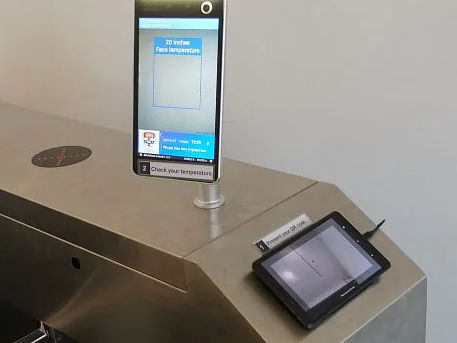University of Sydney develops hospital COVID e-Gate
- November 10, 2021
- William Payne

The University of Sydney and Sydney Children’s Hospitals Network have developed an IoT-based COVID-19 e-Gate integrated entry screening system with The Children’s Hospital at Westmead in Sydney. The COVID e-Gate combines both contact tracing information and temperature screens in one system.
Tested earlier this year, and with potential for rollout for COVID-19 variants or reconfiguring for other infectious diseases, the e-Gate is designed to provide efficient screening and contact tracing process before people enter hospital.
Dr Audrey P Wang, a researcher in biomedical informatics and digital health from the University of Sydney, said the system uses a personalised QR code for physical gate-enabled access based on a combination of evidence-based COVID-19 screening questions and temperature checks.
“Our COVID e-Gate utilises near real-time data analytics to provide the latest available screening information,” said Dr Wang, from the University’s Sydney Institute for Infectious Diseases, Charles Perkins Centre and Faculty of Medicine and Health.
Director of technology at Sydney Children’s Hospitals Network, Mr Michael Dickinson, said the system had been trialled by more than 1500 staff and regular visitors over the past eight months. “Not only does the e-Gate have the ability to be easily expanded to other hospitals but the IoT smart approach to health screening could be useful in other large locations – such as airports and major sports or entertainment venues,” Mr Dickinson said.
Dr Wang said: “We welcome enquiries from organisations who wish to implement and evaluate technology augmented rapid screening workflow systems.”
The e-Gate research project is a Westmead Health Precinct collaboration between the University of Sydney’s Faculty of Medicine and Health, Faculty of Engineering, School of Architecture, Design and Planning and The Children’s Hospital at Westmead, which is part of Sydney Children’s Hospitals Network. It represents a multi-disciplinary collaboration facilitated by the Sydney Institute for Infectious Diseases.





